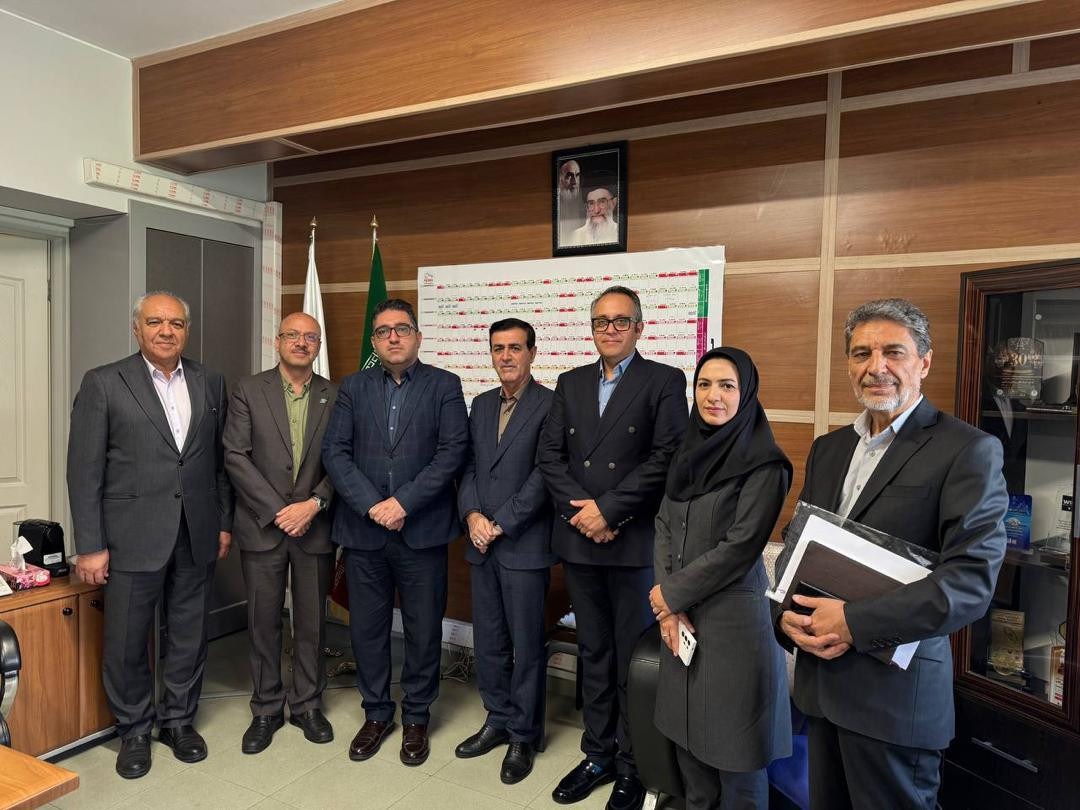Tehran, June 10, 2025 – A specialized meeting was held to address the challenges and issues of the country’s exhibition industry between the Board of Directors of the Iranian International Exhibitions Association and Amir Roshanbakhsh Ghanbari, Deputy for the Development of International Businesses at the Trade Promotion Organization of Iran. During this session, the prominent role of the Association as the executive arm and main coordinator of national exhibition activities was clearly underscored.
According to the Public Relations Office of the Iranian International Exhibitions Association, at the beginning of the session, Rahim Jalili emphasized that the Association’s principal aim is to organize, manage, and systematize the exhibition industry in close cooperation with the Trade Promotion Organization of Iran. He said: “Every expert plan proposed by the Trade Promotion Organization or assigned as a mission to the Iranian International Exhibitions Association has been carried out energetically by the Association thus far.” Highlighting the continuity of multiple Association programs launched since late 2023, he outlined key strategic initiatives and actions, noting that such efforts have directly contributed to reducing the industry’s challenges and maximizing available capacities.
The President of the Iranian International Exhibitions Association further stressed that all exhibition organizers must adhere to the laws and regulations set by the Trade Promotion Organization of Iran. He criticized the delayed submission of exhibition calendars by some centers such as Kish and Shahr-e-Aftab, which has led to scheduling conflicts between different exhibitions. He also expressed concern over the issuance of exhibition site licenses in small towns lacking the required infrastructure and population, stating that such actions by certain authorities undermine the integrity of the national exhibition industry. In conclusion, he reaffirmed that the Association’s core mission is to oversee exhibition-related affairs and that every other organization or entity should remain within the boundaries of their own responsibilities. He warned that state and non-state entities without an inherent connection to exhibition activities must not, under any circumstances, interfere in the operations of exhibition centers.
Later in the session, Ahmadreza Tahaniyan, Vice President of the Iranian International Exhibitions Association, emphasized the importance of the executive regulations and the 2025 exhibition calendar issued by the Trade Promotion Organization. He stated that the issuance of this directive by the Organization has effectively prevented many ongoing obstacles and challenges in the industry, making continued organizational support for its full implementation absolutely essential.
Masoud Khodadad Motarjemi, CEO of Urmia International Exhibitions Company, highlighted the particular challenges faced by the Urmia center and suggested that industry unions can participate in exhibitions by collaborating with the Association.
Seyed Reza Ghandili, a member of the Association’s Board of Directors and CEO of Zanjan International Exhibitions Company, noted that developing exhibition centers as multi-purpose complexes—including commercial centers—could be pursued simultaneously, and Zanjan is prepared to pilot such an initiative.
Morteza Hashemi, Secretary-General of the Iranian International Exhibitions Association, also praised the constructive collaboration between the Organization and the Association in bringing order to exhibition activities. He expressed appreciation to the Trade Promotion Organization for the support extended to the Association.
Subsequently, Amir Roshanbakhsh Ghanbari, Deputy for the Development of International Businesses at the Trade Promotion Organization of Iran, also addressed the meeting, reiterating that all exhibitions nationwide should be held in line with the approach of the Trade Promotion Organization. He announced that provincial export development desks have been established and that the Association can utilize these studies for export-oriented exhibitions. He further noted that specialized exhibitions in export development and trade capitals should be held in provinces outside Tehran to promote decentralization. As per a government resolution, the commercial capital for each field will be assigned to the provinces, and municipal resources will be harnessed to further business and trade development.
Roshanbakhsh Ghanbari, emphasizing that the Iranian International Exhibitions Association acts as the arm of the Trade Promotion Organization of Iran, added: “By strengthening this Association, we aim to officially appoint it as the national coordinator for exhibition organization and introduce it as a reference for all exhibition centers.” He stressed the necessity for all national exhibition centers to coordinate with the Association.
Concluding, the Deputy for the Development of International Businesses at the Trade Promotion Organization of Iran reiterated that the Association was appropriately established and that all exhibitions in the country should be held under the direction of the Trade Promotion Organization and, subsequently, the Iranian International Exhibitions Association. He also stated that streamlining the national exhibition industry requires the formulation of nationwide guidelines by the Trade Promotion Organization and that continued consultation sessions between the Organization and the Association are critical, given that the Association serves as the executive arm of the Trade Promotion Organization.
End of report.
 English
English
 فارسی
فارسی


Add New Comment